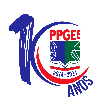Banca de DEFESA: ENA CARINA DOS SANTOS OLIVEIRA
Uma banca de DEFESA de MESTRADO foi cadastrada pelo programa.DISCENTE : ENA CARINA DOS SANTOS OLIVEIRA
DATA : 02/10/2019
HORA: 09:30
LOCAL: Ufopa, Unidade Rondon, Sala R3
TÍTULO:
International curriculum approaches to early childhood education: the place children play in the social relations of day care centers and preschools.
PALAVRAS-CHAVES:
Curriculum Approaches; Child education; Children
PÁGINAS: 92
GRANDE ÁREA: Ciências Humanas
ÁREA: Educação
RESUMO:
The main objective of this research was to analyze the repercussions of the High Scope, Reggio Emilia and Movement of the Modern School curriculum approaches on Brazilian scientific productions, trying to understand how they contribute to the reflection about the place that the child occupies in the relationships that he / she participates in day care centers. preschools. To achieve this goal, we sought to identify the research axes of scientific productions dealing with such international curriculum approaches; Identify how the organization of time and space and the interaction of the teacher with the children contribute to the development of activities and verify the limits and possibilities of curricular proposals for early childhood education in Brazil. These approaches are references regarding the curriculum for early childhood education in the world, considering that the child is a subject of rights, a historical and active human being in the whole educational process with the teacher and the social environment. In Brazil, the approaches have entered the discussions and educational proposals of day care centers and preschools, but it is essential to understand how they are being understood and what their possibilities and limits in face of the Brazilian reality. In view of this, a bibliographic survey was performed in electronic repository banks of Brazilian scientific productions that bring these international curriculum approaches in their discussions. The data were organized in tables that present general aspects of these productions. To better understand the child's place in school relations, as well as the limits and possibilities of feasibility in Brazil, a scientific production was selected and analyzed that brought in its research corpus the approach of Reggio Emilia, which was the approach with the largest number of children. productions found in the initial survey. The discussions and analysis were based on the Historical-Cultural Theory, reference of this study. From this analysis it was found that the main themes addressed in the productions are related to teacher education, organization of time and space, interaction between the subjects (child-teacher-family-environment) and play. In the analysis of the selected scientific work it was possible to verify how aspects such as the use of pedagogical documentation and the studio space can help in the construction of a quality early childhood education in the Brazilian territory. Activities involving such aspects highlight the role of the child in the whole educational process. However, the author emphasizes the permanence of negative teaching practices even in the face of the formative intervention, which indicates that the changes happen gradually and that it is necessary not only isolated actions, but a set of public policies that occur and consolidate in the process. day-to-day early chilhood education.
MEMBROS DA BANCA:
Interno - 1776813 - LUIZ PERCIVAL LEME BRITTO
Externa à Instituição - ROSIMEIRE COSTA DE ANDRADE CRUZ - UFC
Presidente - 1965707 - SINARA ALMEIDA DA COSTA




